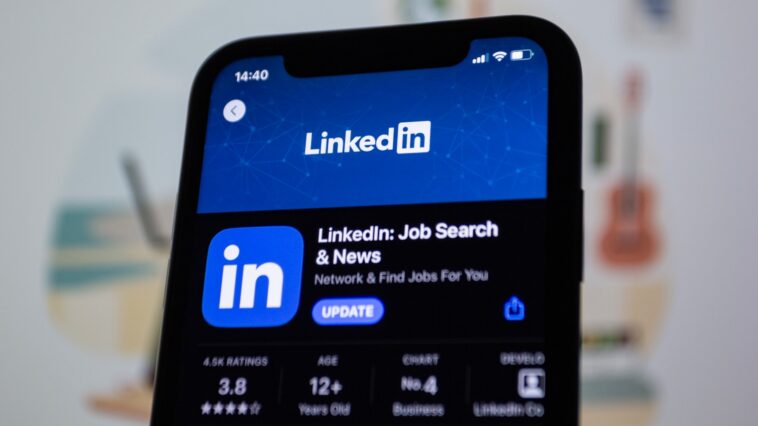Looking for a job today feels very different from even a few years ago. The old method of printing out resumes and dropping them off at offices is long gone. Now, the process is almost entirely digital.
That means the right tools can make a huge difference—not just in finding job postings, but in networking, improving your resume, and even preparing for interviews.
When I was on the hunt for new opportunities, I realized that there are so many apps and websites out there that it’s easy to feel overwhelmed. Some are great, others… not so much.
To save you the trial and error, I’ve rounded up 30 of the most useful platforms every job seeker should know.
These aren’t just job boards—they include resume builders, networking tools, and even apps to keep you motivated.
Job Search Platforms
1. LinkedIn
The obvious starting point. LinkedIn isn’t just a networking site—it’s a job board, a personal brand builder, and a place where recruiters actively search for talent. Keeping your profile sharp is essential.
2. Indeed
Still one of the largest job boards worldwide. It pulls listings from multiple sources, making it a go-to hub for job seekers in almost every industry.
3. Glassdoor
Famous for company reviews, Glassdoor also has a solid job board. The reviews can give you a peek at what it’s really like to work at a company.
4. ZipRecruiter
What I like about ZipRecruiter is how it proactively sends your profile to recruiters. Their matching system makes it more than just a place to browse listings.
5. Monster
An early player in the online job search game, Monster is still around and continues to offer job listings, resume tips, and career advice.
6. SimplyHired
This site pulls job listings from across the web and also gives salary estimates, which can help you understand what’s fair before applying.
7. FlexJobs
Perfect for people looking for remote or flexible roles. Every listing is hand-screened, so you can avoid scams or low-quality postings.
8. Snagajob
Best for hourly work, especially in retail, hospitality, and customer service industries.
9. AngelList (Wellfound)
If startups excite you, this is the place. It’s where early-stage companies post openings for tech and business talent.
10. Dice
Specifically built for tech professionals. If you’re in software engineering, IT, or related fields, Dice is worth bookmarking.
Resume and Portfolio Builders
11. Canva
Not just for social media graphics—Canva has beautiful, easy-to-use resume templates. A polished resume can make you stand out instantly.
12. Zety
An online resume builder that guides you step by step. It also suggests content as you go, which is handy if you’re not sure what to include.
13. Novoresume
I like Novoresume because it focuses on keeping things concise while still looking professional.
14. VisualCV
This is a portfolio-style resume builder that works well if you’re in a creative field or want something more than a plain PDF.
15. CakeResume
Lets you create a modern-looking resume with drag-and-drop tools. Great for people who prefer a little design flair.
Networking and Personal Branding
16. Twitter (X)
Love it or hate it, many professionals and recruiters use Twitter to share openings and insights. Following industry leaders here can open unexpected doors.
17. Meetup
Job hunting isn’t all online. Meetup helps you find networking events, industry groups, and professional communities in your area.
18. Shapr
Often described as “Tinder for networking.” It matches you with professionals who share your interests and career goals.
19. About.me
A simple landing page for your personal brand. You can link your resume, portfolio, and social profiles all in one place.
20. Behance
If you’re in design, photography, or another creative profession, Behance is almost essential for showcasing your work.
Skill-Building Platforms
21. Coursera
You can take courses from universities and organizations worldwide. Some even offer certifications that employers recognize.
22. Udemy
Affordable online courses across almost every subject. If you need to learn a new software or brush up on a skill quickly, this is a solid choice.
23. Skillshare
Focuses on creative and practical skills, from graphic design to productivity. It’s less formal than Coursera but still valuable.
24. LinkedIn Learning
Directly tied to your LinkedIn profile, so when you complete courses, they show up on your page. That visibility is a plus.
25. Khan Academy
While not a job-focused site, Khan Academy is a fantastic free resource for brushing up on fundamentals, especially if you’re shifting careers.
Interview Prep and Career Support
26. Glassdoor (Interview Reviews)
Besides job listings, Glassdoor also has a huge library of interview questions submitted by actual candidates. It’s gold when preparing.
27. Interviewing.io
Lets you practice technical interviews anonymously. Especially useful for software engineers.
28. Big Interview
An interactive platform with mock interview training and feedback to help you feel more prepared.
29. Career Contessa
Built for women navigating the job market, with career advice, webinars, and interview prep resources.
30. Upwork (for Freelancing Experience)
Even if freelancing isn’t your long-term goal, taking a few projects on Upwork can help fill resume gaps and build new skills.
FAQs
How many platforms should I actually use?
You don’t need to use all 30 at once. I’d recommend picking 2–3 job boards, 1 resume builder, and 1–2 networking tools. Quality beats quantity.
Are paid platforms worth it?
Some, like FlexJobs or Coursera certifications, can be worth the investment if they align with your goals. But many free tools are more than enough to get started.
Do I really need LinkedIn?
In most industries, yes. Recruiters almost always check your LinkedIn, even if you apply elsewhere.
What if I’m changing careers?
Skill-building platforms like Coursera or Udemy, combined with networking apps like Meetup, can help you break into a new field more smoothly.
Final Thoughts
Finding a job can feel overwhelming, but with the right mix of tools, it becomes a lot more manageable—and sometimes even exciting.
The key is to remember that job hunting isn’t just about sending out applications—it’s about building connections, improving your skills, and presenting yourself in the best possible way.
So here’s my question for you: which of these tools do you think will help you the most in your job search, and which one are you going to try first?





GIPHY App Key not set. Please check settings